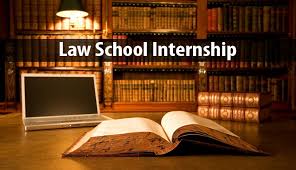In this blog post, Dr. Praveen Kumar Lohchab, the Officiating Head at NCU Law School, Gurgaon, provides effective success tips for Law Students.
Introduction
At the outset, I must acknowledge the efforts of Super Lawyer.in to envisage my ideas to guide law students while pursuing legal education to achieve success in their career. We believe that the journey of getting a dream job at any law firm or pursuing a legal practice and becoming a well-established lawyer begins only after legal education. I disagree a little on this public perception. According to my experience in the Legal Academia and Industry, his journey starts from the very first day, i.e., the day a student from any background decides to pursue law as a career. So my first advice to all students is that they must plan this journey from the first day. To support my view, I would like to quote a few words by Erin Andrews, who has said, “Success doesn’t happen overnight. Keep your eye on the prize and don’t look back”.
Law School Selection
Students must prepare for the CLAT and the LSAT Examination to get enrolled in top National Law Universities. I have noticed most of the students write competitive exams without knowing the outlines of the Syllabi of these competitive exams. Without preparation, students cannot get admission in desired law schools.
Appropriate Course Curriculum
Gone are the days, where we had the traditional dual degree integrated five years BA-LLB degree, and this was the only option available for law students to pursue. Now with the changing paradigms of legal education, we have other specialisations that have merged with Law like BBA-LLB, BBA-LLB (Hons.), B.Tech-LLB, BSc-LLB, etc. These degree programmes have been designed to cater to the needs of the industry. Many leading Universities have excelled in imparting these specialised programmes. For Instance, BBA LLB (Hons.) is the flagship programme of The NORTHCAP University Law School, Gurgaon. Likewise UPES, Dehradun has emerged with the B.Tech-LLB in energy laws. However, I will not suggest enrolling in a Law programme with B.Tech., because the employment prospects in the legal industry with respect to engineering is limited, on the other side BBA-LLB (Hons.) has become the need of the hour.
Constant Guidance and Innovative Comprehensive Teaching Learning
I, myself have witnessed that the teaching-learning methodology in traditional Universities is losing its significance day by day, yet private Universities have excelled in a short time span. This is not because of their infrastructure, but qualified and dedicated faculty present in the university. The way in which the faculty engages the students with its innovative and comprehensive teaching-learning methods, I think this is the first factor responsible for the growth and development of the students. And Students also must participate in every activity inside or outside the class. If we compare the ratio of students getting placement every year from both, Traditional Universities and Private Universities, I must say that the placement ratio of Private Universities is much higher.
Contemporary Course Curriculum
There is a very common perception in society that students opt for Law Schools and Law programmes on certain priorities like the location of the Law School, Programme Fee, Infrastructural Facilities, hearsay references from friends and other criterion. They soon realize that they have landed up in the wrong law school and have enrolled in an integrated law programme in which they are not able to explore the content and as a result, they complete the programme without achieving expertise in the subject. Students must make preliminary enquiries about the course curriculum of all Law programmes and available specializations. They can opt for career counselling and simultaneously, they can consult professionals from the legal industry and legal academia.
Interactive Approach Towards Learning Law Courses
Students must participate in all activities, inclusive of the ones inside and outside of the classroom. Lot of opportunities are floating around and I have witnessed, only few students are vigilant in exploring.  Online legal resources like Manupatra, Lexis-Nexis, and Westlaw, etc., are available to retrieve decided judgements and other legal literature. Several E-books are also offered online on every contemporary subject. Students must develop reading-writing habits. Simultaneously, students must participate in Moot Court Activities, which is a prominent exercise in every law school.
Online legal resources like Manupatra, Lexis-Nexis, and Westlaw, etc., are available to retrieve decided judgements and other legal literature. Several E-books are also offered online on every contemporary subject. Students must develop reading-writing habits. Simultaneously, students must participate in Moot Court Activities, which is a prominent exercise in every law school.
Internships
Internships during every semester break are not only a mandatory exercise to get the degree but a vital activity, without this practical knowledge could not be imparted. I must say that without effective internships, legal education is incomplete. Internship bridges the gap between the classroom and the real world. After every end term exam in every semester, students are offered the opportunity to avail of a four-week internship. Therefore, during the five years of any law programme, students get 40 weeks for practical exposure. Students must utilize this opportunity to learn practical components of the industry, which is not possible in the classroom. Students must perform well in their internships so that they can convert their internship opportunity into an employment opportunity.
Extra Curricular Activities
A 360 degree approach is essential to groom law students. Extracurricular activities like Debating, Essay writing, Blog writing, Newspaper column writing, Research Papers writing, presenting research papers in seminar, conferences, workshops and participating in Moot Court Competitions are some of the best extracurricular activities which help develop communication skills of the students.
Lastly to conclude, pursuing a law programme from the best law school in the country may not help students to attain success in their life, but pursuing a law programme with passion, dedication and commitment can do so.
 Serato DJ Crack 2025Serato DJ PRO Crack
Serato DJ Crack 2025Serato DJ PRO Crack












 Allow notifications
Allow notifications


